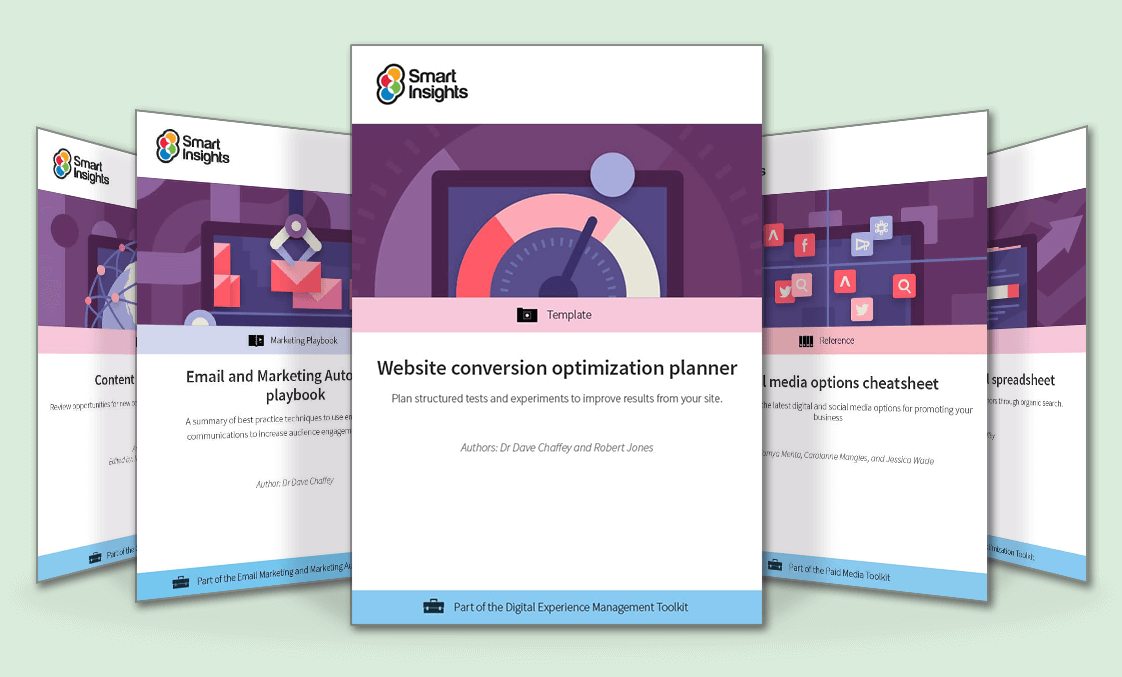Practical copywriting tips and examples for e-commerce websites
 As Coronavirus spreads around the world, e-commerce websites need messages telling customers what service they can expect from the new normal.
As Coronavirus spreads around the world, e-commerce websites need messages telling customers what service they can expect from the new normal.
A few are doing these really well, but many are falling into the trap of writing in a stiff, legalistic language that does nothing to reassure or persuade customers to carry on buying.
It’s understandable. Plummeting sales figures (unless you’re selling Vitamin C) means that Business owners are panicked about keeping the company afloat, senior managers are petrified about their jobs and everyone is scrambling to get their work done. As human beings, they are worried about their friends, family and possibly their own health too.
Those huge levels of anxiety permeate through to stiff, formal wording that does nothing to reassure with statements like “Our existing business continuity plans have been designed to support the continued delivery of product and services by providing options to mitigate the effects of a range of risks, including infectious disease/pandemic and related impacts.”
The only saving grace is that it’s better to do something than nothing. It’s amazing how many websites don’t even mention the C-word. To a consumer that doesn’t mean ‘business as usual,’ it means ‘they’ve gone home but left the lights on’.
Right now the number one thing any customer wants to know when they visit your website is delivery information. A quick look at your GA will probably show a spike in visits to the delivery page. Your Qualaroo pop up surveys will probably be full of comments showing a demand for deliveries like these, from a South African e-commerce website:
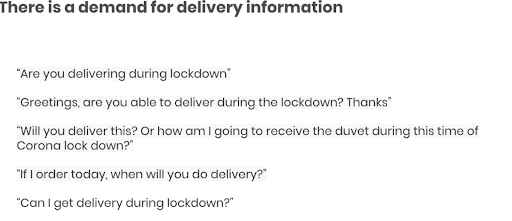
Above: Actual Qualaroo quotes kindly provided by Brendan McNulty of AWA digital
Guidelines for Coronavirus Messaging
So what should you be doing? Quite simply, go back to basics and apply the same planning discipline you would for any marketing message. Think about the reader. Who are they? What are they thinking? What do you want them to know, think, feel and do?
1. Tell them what they want to know.
Right now, before anyone starts shopping, they want to know:
‘Are you still trading?
Can I still buy from you?
How (or how long) will it take to get to me?
Answer those questions upfront - with a large, readable banner, not a tiny notice that they need to click on.
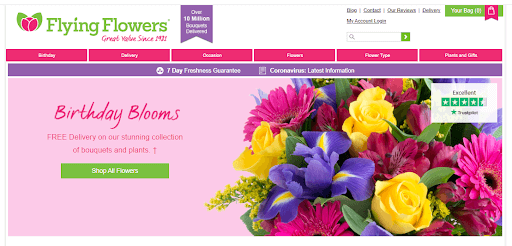
Serenata Flowers has a large, legible banner reassuring customers that they can place an order. It has an appropriate large image and headline that reads ‘Send a little love, We’re still here for you’.
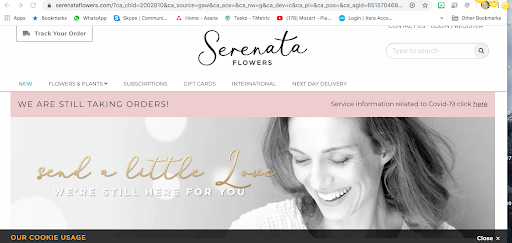
The cheeriness of the image and headline is out of kilter with the times when so many people are forced to be apart. Reference to Coronavirus is lost with all the bright colors.
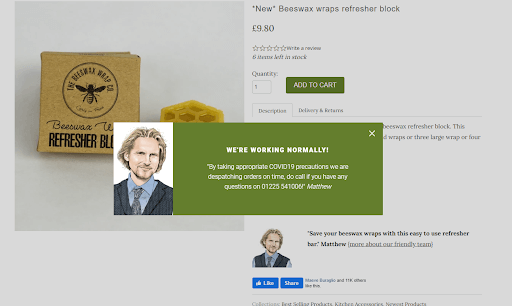
The reassuring tone and photo of the founder tell customers everything they need to know in just a few words.
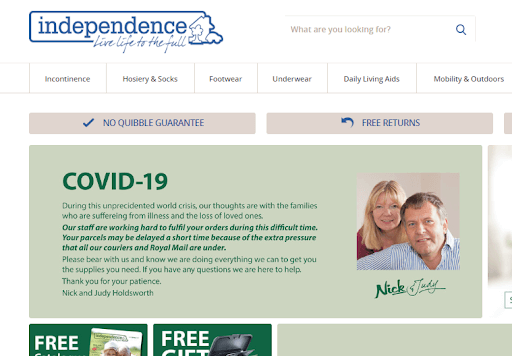
This independent living aids firm is having some of their best trading weeks ever.
2. Be clear.
Customers want to know EXACTLY what you can do for them, not what you can’t. Focus on the positives. In the current climate if you can deliver in 2-4 days that’s amazing. Focus on that rather than ‘next day delivery is no longer available’.
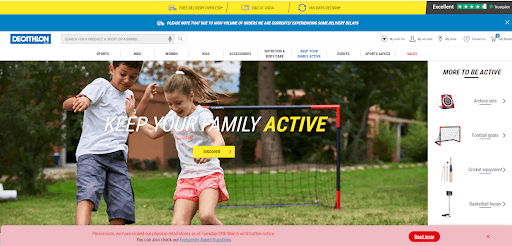
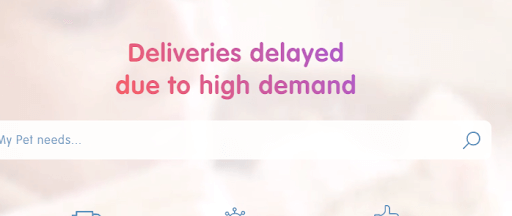
Above: Both the companies above can actually deliver within a few days, but the stark messages about delivery delays don’t invite people to read on.
On-page SEO and copywriting template
This resource is a practical template to help content editors improve how they create and update copy for web pages to improve their ranking in the organic search results.
Access the On-page SEO and copywriting template
3. Be credible.
In countries that are in total lockdown, this may mean explaining clearly when they will get their deliveries. It’s crucial to establish trust through a calm and authoritative tone of voice.
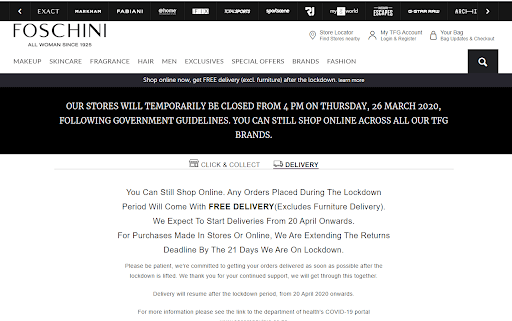
The customer has to work hard to work out that they can still order from this site. The eye is drawn to the main headline that stores are closed. The wording ‘We Expect To Start Deliveries From 20 April Onwards’ sounds unsure and leaves the reader doubting whether it would happen.
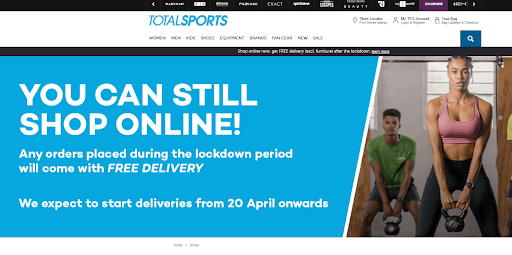
By contrast, this South African online store gives a clear and credible message, with information presented in the right order, to encourage orders right now. The last line uses the same words as above - We expect to start deliveries from 20 April onwards - but the upbeat tone, consumer-centric layout and intelligent hierarchy of information inspires confidence.
4. Adopt a tone of voice that’s in line with the rest of your brand.
Use ‘second person singular’ – the ‘ from me to you’ tone of voice. People read copy one at a time so talk to them as if they’re the only ones reading it. Don’t address them as if you’re talking to a stadium or as if you’re talking about someone else in the room next door. Banish phrases like ‘We’re doing everything we can for our customers’.
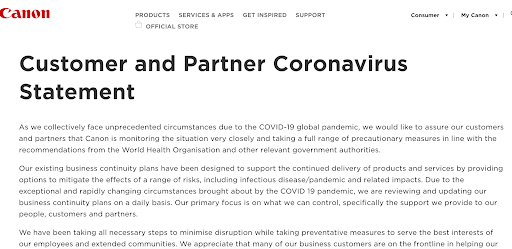
Canon’s message reads like a report by the finance department to the board of directors, rather than a reassuring message to customers.
5. Focus on the customer and their needs, not yours.
People are interested in themselves, not in your policies, not how much you care about the safety of the community, or how hard your staff are working. Avoid Clutter. You don’t need two paragraphs explaining what Coronavirus is, or talking about the history of the company before getting to the meat of the message.
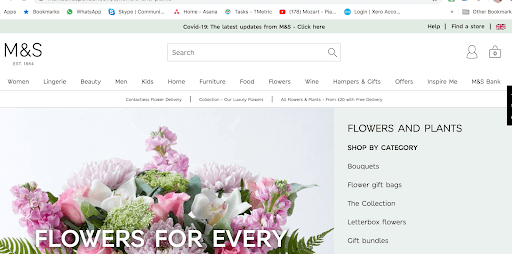
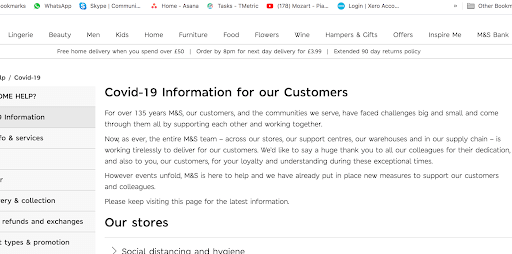
Marks & Spencer seems to want to talk more about itself than addressing customers’ needs
6. If you’ve stopped trading, tell people what is happening to their recent orders.
Think about how you’re going to get those customers back when this is all over. Set up an email address capture for anyone who wants to be notified when you’re back in business.
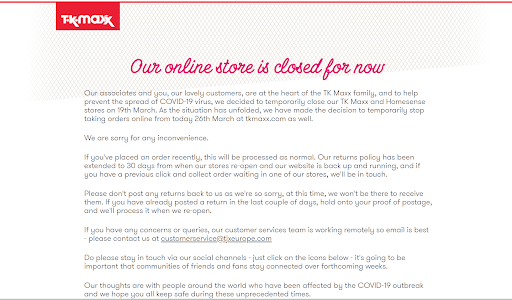
TK Maxx gives clear and concise information for any customer who has placed an order recently.
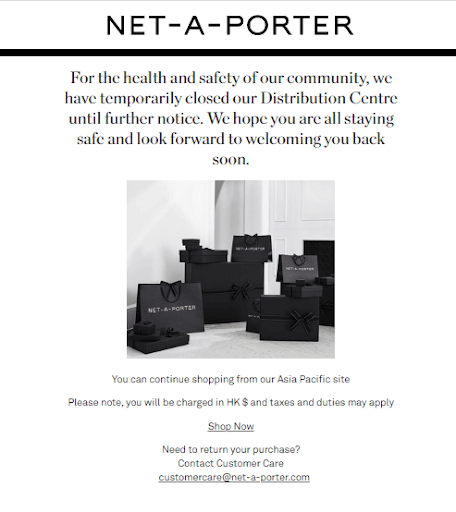
Net-a-Porter leaves customers in the lurch. They have also missed a trick in not setting up a capture system so that they can email customers when they start trading again.
7. One final tip.
When we come out on the other side, Amazon is likely to be even more dominant than they were before. Now is a great time to look over your listings, and get them ‘retail ready’ with strong, optimized titles, compelling bullet points and good A+ content. When the new dawn comes - and it will - you’ll come out of the starting blocks ready to run.
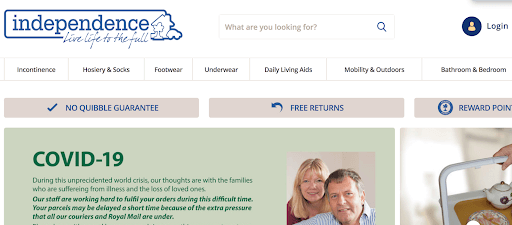
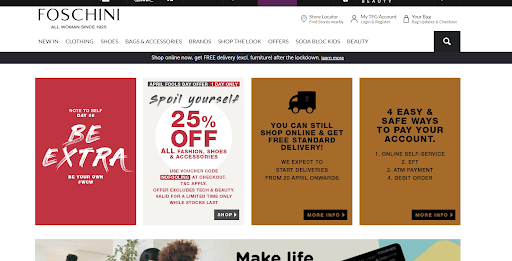



 As Coronavirus spreads around the world, e-commerce websites need messages telling customers what service they can expect from the new normal.
As Coronavirus spreads around the world, e-commerce websites need messages telling customers what service they can expect from the new normal.














